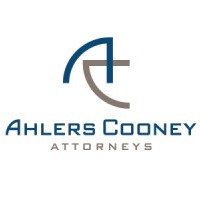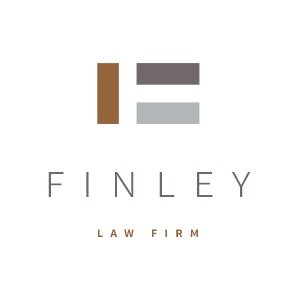Best Tax Increment Financing Lawyers in Des Moines
Share your needs with us, get contacted by law firms.
Free. Takes 2 min.
List of the best lawyers in Des Moines, United States
About Tax Increment Financing Law in Des Moines, United States
Tax Increment Financing (TIF) is a public financing method used for subsidizing infrastructure and community improvement projects in Des Moines, United States. The city utilizes TIF to encourage development in underdeveloped or blighted areas by redirecting future property tax revenue increases from a designated district toward financing improvements within it. The main objective of TIF is to stimulate economic growth, support businesses, and enhance public infrastructure without raising taxes. This typically involves a collaboration between local government entities and private developers.
Why You May Need a Lawyer
Engaging with Tax Increment Financing can be complex, involving a myriad of legal, financial, and government regulation considerations. Here are several situations where you might need a lawyer:
- Understanding TIF Agreements: Legal assistance is often required to comprehend the detailed agreements and ensure the terms are favorable.
- Compliance with Regulations: Attorneys can help ensure compliance with local ordinances and state laws governing TIF projects.
- Negotiations with Authorities: Lawyers can assist in negotiations with local government bodies to secure TIF funding.
- Resolving Disputes: Legal conflicts may arise between developers, contractors, or government agencies, requiring dispute resolution.
- Strategizing Financial Implications: Counsel can provide guidance on the financial impacts and tax implications of engaging in a TIF project.
Local Laws Overview
In Des Moines, specific ordinances govern the utilization of Tax Increment Financing, influenced by both state and municipal regulations. Key aspects include:
- Designated TIF Districts: Areas eligible for TIF must meet criteria for economic development need or blighted conditions.
- Public Approval Process: TIF projects typically require approval from local government bodies after public consultations.
- Use of Funds: Funds must be used for public purposes, such as infrastructure improvements, land acquisitions, and public facilities.
- Compliance with Iowa State Code: All TIF arrangements must align with state legislation, which provides detailed guidelines for implementation and oversight.
Frequently Asked Questions
What is the primary purpose of Tax Increment Financing in Des Moines?
The primary purpose of TIF in Des Moines is to spur economic development in underdeveloped or blighted areas by using the future property tax revenues generated by those areas to fund development projects.
How is a TIF district established in Des Moines?
A TIF district is established after local government agencies identify a need for development, define the district boundaries, and secure approval through prescribed legislative processes.
Who administers TIF funds in Des Moines?
TIF funds are administered by local government authorities, often through an appointed redevelopment agency responsible for overseeing the implementation and management of TIF projects.
Can TIF funds be used for private projects?
While TIF funds typically support public projects, they may indirectly assist private projects if those projects contribute to broader public improvements, such as infrastructure development.
Are there risks associated with TIF?
Risks include the potential for insufficient tax revenue to cover bond repayments, misalignment of development benefits, and criticism over public fund use.
How does TIF impact property taxes in the community?
TIF does not immediately impact property tax rates; instead, it reallocates where those tax revenues are spent, focusing on district improvements.
How long does a TIF district last?
The duration varies but is typically limited to a maximum number of years as stipulated by local and state laws. In Iowa, the maximum is often 20 years.
What happens when a TIF district expires?
Once expired, any increased tax revenues beyond the original baseline assessed value are distributed among all taxing entities.
How can businesses benefit from TIF?
Businesses can benefit from improved infrastructure, increased property values, and potentially lower operating costs due to enhanced public amenities.
Is public input considered in the creation of TIF districts?
Yes, public input is solicited through community meetings, hearings, and consultations to ensure community needs and opinions are considered.
Additional Resources
For further assistance and information on TIF in Des Moines, consider these resources:
- Iowa Department of Economic Development
- Des Moines City Council
- Greater Des Moines Partnership
- Local legal firms specializing in municipal and finance law
Next Steps
If you require legal assistance with TIF, consider the following steps:
- Consult a Legal Expert: Contact a lawyer specializing in municipal finance or real estate law for personalized guidance.
- Prepare Documentation: Gather all relevant documents, such as TIF proposals, feasibility studies, and municipal communications, for your lawyer's review.
- Schedule a Meeting: Set up a consultation with your legal counsel to discuss strategies and next steps.
- Attend Community Meetings: Participate in public consultations and meetings to stay informed and involved in the TIF process in your area.
Lawzana helps you find the best lawyers and law firms in Des Moines through a curated and pre-screened list of qualified legal professionals. Our platform offers rankings and detailed profiles of attorneys and law firms, allowing you to compare based on practice areas, including Tax Increment Financing, experience, and client feedback.
Each profile includes a description of the firm's areas of practice, client reviews, team members and partners, year of establishment, spoken languages, office locations, contact information, social media presence, and any published articles or resources. Most firms on our platform speak English and are experienced in both local and international legal matters.
Get a quote from top-rated law firms in Des Moines, United States — quickly, securely, and without unnecessary hassle.
Disclaimer:
The information provided on this page is for general informational purposes only and does not constitute legal advice. While we strive to ensure the accuracy and relevance of the content, legal information may change over time, and interpretations of the law can vary. You should always consult with a qualified legal professional for advice specific to your situation.
We disclaim all liability for actions taken or not taken based on the content of this page. If you believe any information is incorrect or outdated, please contact us, and we will review and update it where appropriate.















